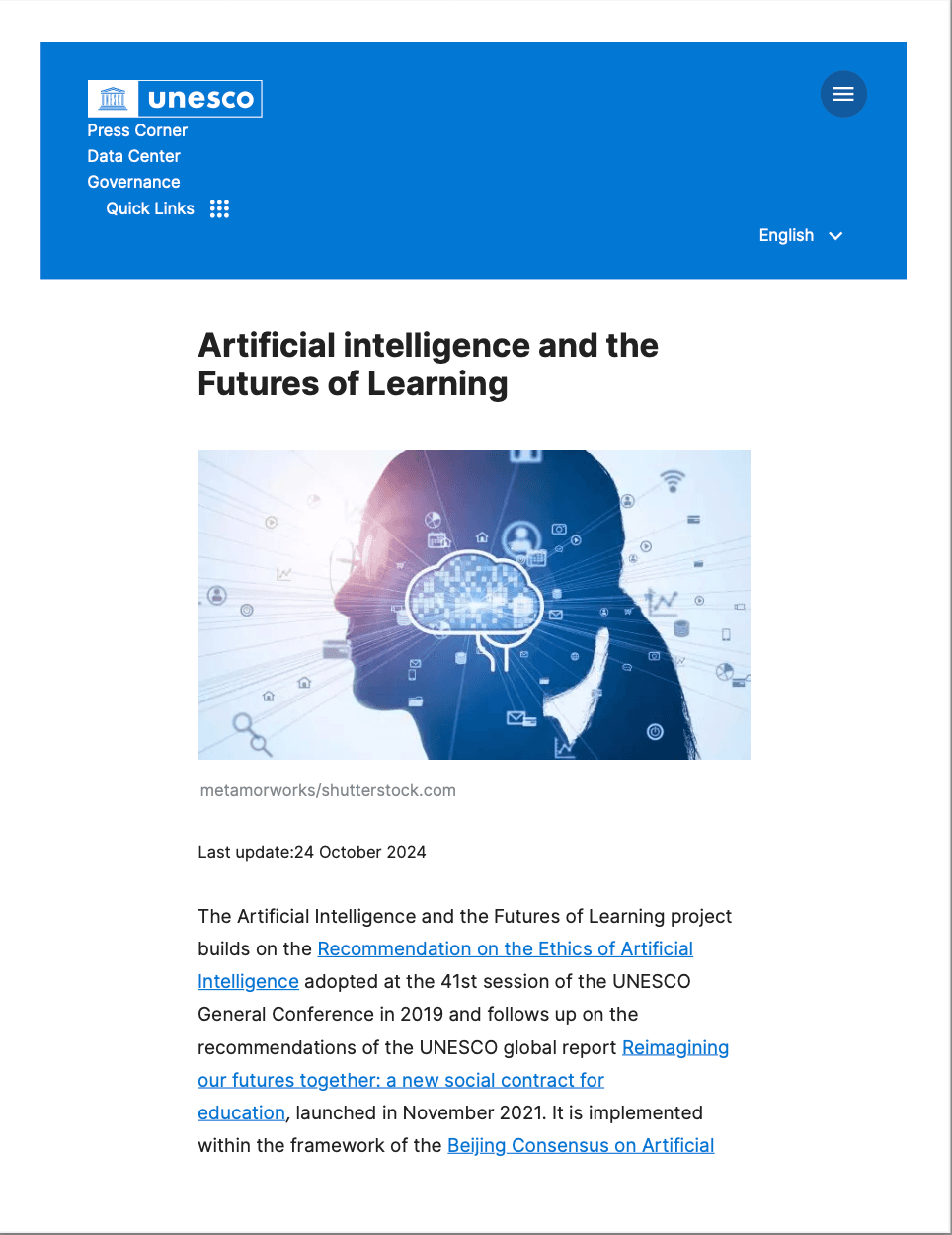The UNESCO report on Artificial Intelligence and the Futures of Learning explores the intersection of AI and education, emphasizing the need for ethical and responsible AI integration in learning environments. It builds upon previous UNESCO initiatives, including the Recommendation on the Ethics of Artificial Intelligence (2019) and the Beijing Consensus on AI and Education.
The report is structured around three key areas: AI and the Future of Learning, Guidance for Generative AI in Education and Research, and AI Competency Frameworks for Students and Teachers. It highlights international policy dialogues, ministerial roundtables, and forums that address the challenges and opportunities AI presents in education. A major focus is on equipping both students and teachers with AI literacy, ensuring they can navigate and leverage AI effectively.
Knowledge production initiatives include surveys on government AI policies in education, research on AI curricula, and frameworks defining essential AI-related skills. The report also covers capacity-building efforts, such as AI training workshops for teachers in countries like Lebanon and Oman.
Ultimately, UNESCO advocates for AI as a common good, encouraging regulations and competency development to maximize AI’s benefits while mitigating risks like bias, misinformation, and ethical concerns in education.





